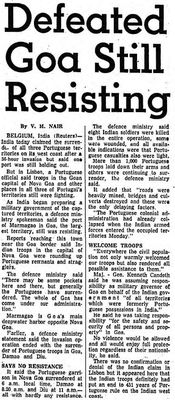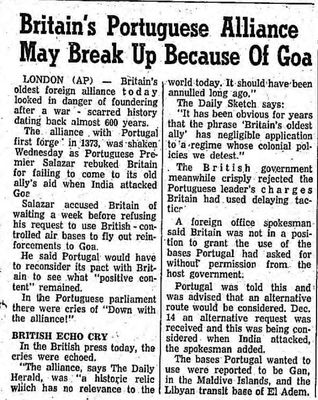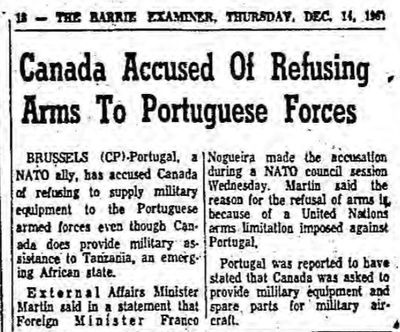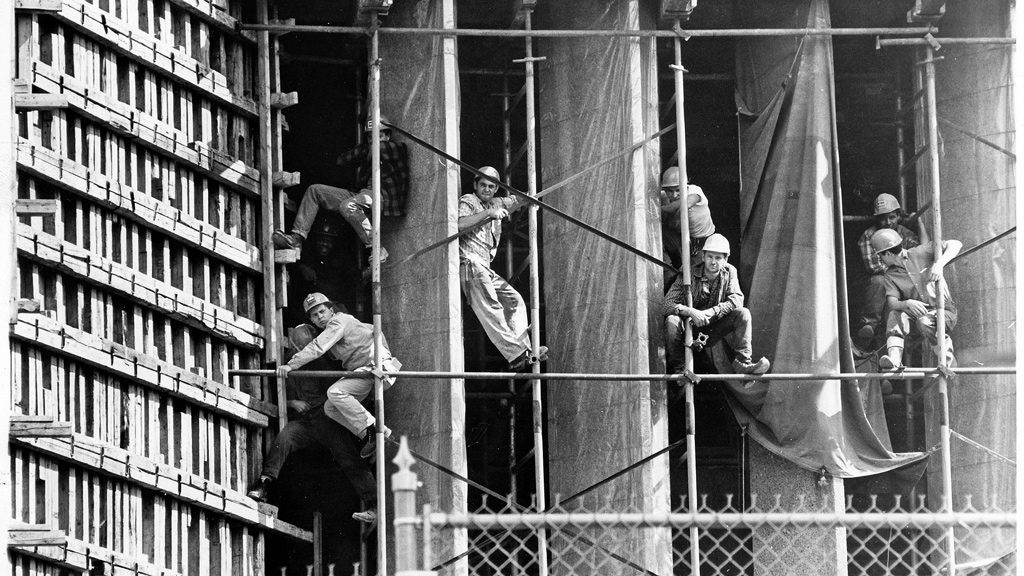
Portuguese Canadians & Wars
With the boom of Portuguese migration to Canada since the year 1953, an influx of information was also brought by the Portuguese migrants (notably Azoreans) to Eastern Canada. With growing Portuguese communities all over Ontario, local media also began covering more relevant issues and news about Portugal in the 1960s. Apart from Portuguese-owned newspapers like the Toronto Sun, there were English-based newspapers, most notably the Barrie Examiner that continuously tracked the development of Portugal's colonial conflict and gave us a hint of how Portuguese people living in Canada may have felt about what was going on in the world.

Connect Portuguese World Wide With Media
Starting in the early 1960s the Barrie Examiner began reporting on international events related to Portuguese colonial unrest and dissent in Angola, Luanda, Goa and other Portuguese colonies in Africa. The increasingly hot local unrest resulted in insurgencies soon after the arrival of Portuguese soldiers. In the 1960s many of those Portuguese who fought in Africa migrated to Canada after five years of military service. When Portuguese conscripts fought in the African jungle, they faced a lack of supplies, disease, continuous skirmishes and more than often life and death situations of all kinds. With many soldiers suffering from both mental and physical traumas, returning to Portuguese society was hard because the Estado Novo government used nationalist propaganda to derive the Portuguese public's attention away from the veterans' post-war trauma. Therefore, many veterans decided to migrate to Canada for economic opportunities, and to live in a more egalitarian society where the pioneers had already established a foothold.

Immigration Boom & Gatekeepers
Entering the 1960s Portugal's colonial wars led to mass conscription, and many of those who were conscripted and fought in Portugal's colonies retired from service with their own stories and traumas. There were more retired veterans from this period than Portugal has ever seen since the First World War. The stories of the newcomer veterans in the 1960s and 1970s became the center of attention, and so were the wars they fought in. Among many newspapers and communal publications that tracked the development of Portuguese colonial wars, Barrie Examiner was one of the most notable magazines that helped Portuguese Canadians learn what Portuguese people were experiencing at the time. The immigration boom in the 1960s came along with the information boom, and Portuguese Canadians started to read more coverage about their homeland.
With more and more Portuguese conscripts retiring from the military and moving to Canada, Portuguese Canadian communities saw new settlers from all over Portugal. Apart from the Azoreans who came in the 1950s, there were new Portuguese migrants from Porto, Lisbon, and Madeira. These settlers brought their folk music, culinary culture, fashion, literature and arts to the existing communities. As a result, from the 1960s onwards, Portuguese Canadian communities began thriving with much more diversity. With more and more veterans and their families arriving, the pioneers and those who were renowned were put to the challenging task of finding jobs for the newcomers.

Life as Newcomers
With the formation of Portuguese communities in Oakville, Chatam, Barrie, Mississauga, and Little Portugal, larger worker forces also began to appear. The pioneers played important parts in organizing communities, and running or even funding food factories and farms that employ almost only Portuguese migrants. This creates an almost self-sufficient communal circle between neighbourhood, workplaces, socialization and economic benefit, which allow newcomers a comfortable soft landing upon their arrival.
